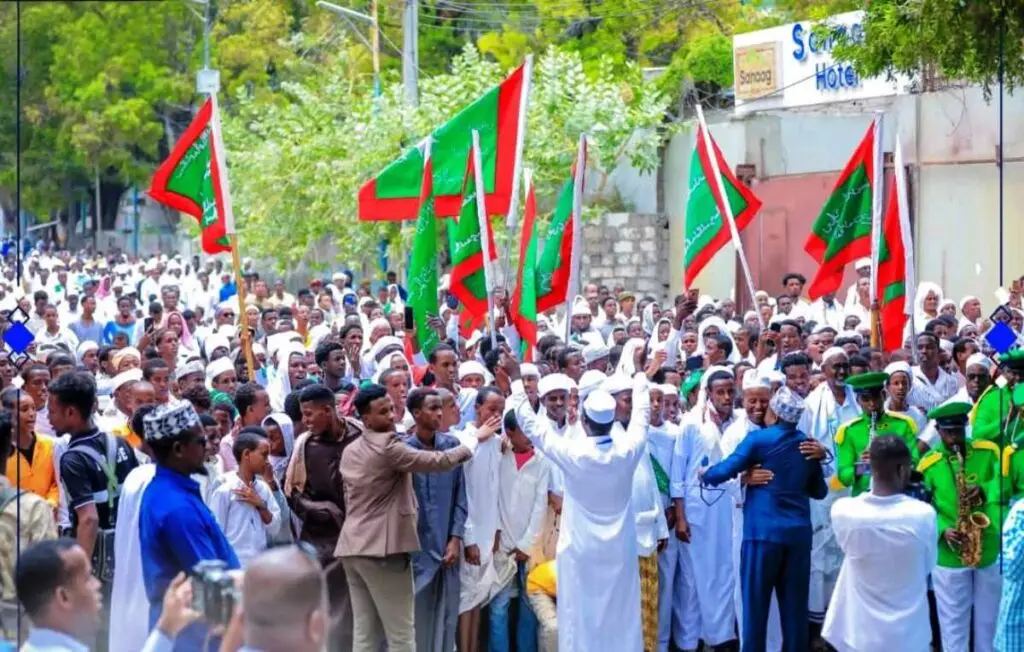MOGADISHU, Somalia — Thousands gathered in Mogadishu to mark the Prophet Muhammad’s birthday, reviving a tradition banned by Al Shabab, an al Qaeda-linked group.
Mawlid celebrations include Quran recitations, religious songs, and processions, mainly led by Sufi communities across Somalia and other Muslim countries.
In Mogadishu, worshippers dressed in white waved green flags, overflowing mosques and filling streets with chants, ululations, and joyful singing.
Sheikh Abati Abba Nur, a Sufi scholar, urged critics to “fear God,” saying celebrating the Prophet’s birth is consistent with Islam.
Somali scholar Sheikh Bashir Ahmed said these gatherings imitate non-Muslim customs and do not qualify as acts of worship.
Wahhabi scholar Sheikh Abdurahman Diriye opposed the holiday, saying the Prophet Muhammad did not celebrate his own birthday.
Many ordinary Somalis welcomed the holiday. “People recognize the day’s importance as they move away from ignorance,” said Ali Ahmed.
Al-Shabab militants, who oppose the government, continue attacks and consider Sufi practices heretical, banning Mawlid during their control.
Al-Shabab’s ban forced Mawlid celebrations underground until militants were expelled from Mogadishu in 2011.
Since then, Mawlid gatherings have returned and grown each year under heavy security.
While many Muslim countries observe Mawlid publicly, Saudi Arabia’s Wahhabi authorities reject it as a religious innovation.
